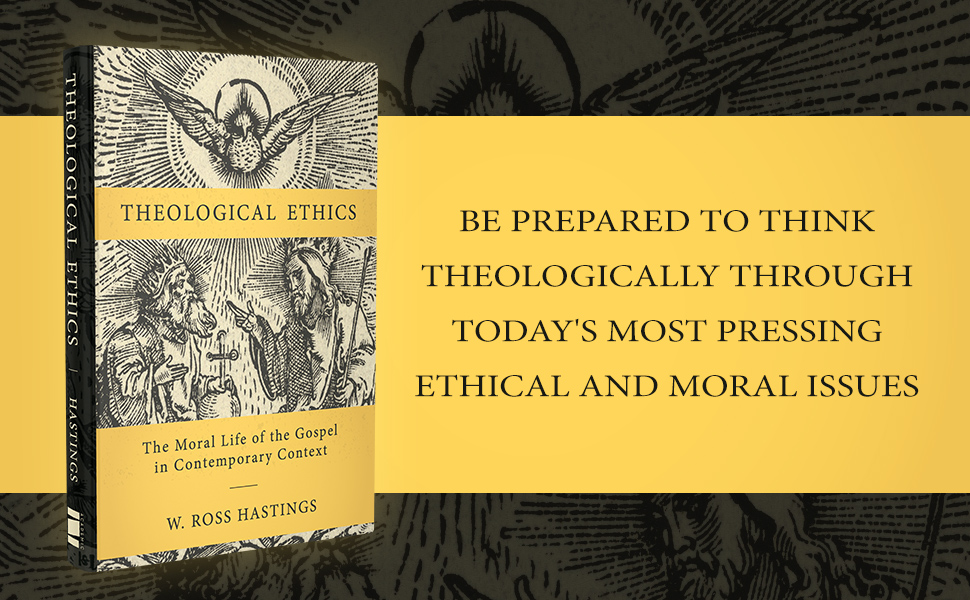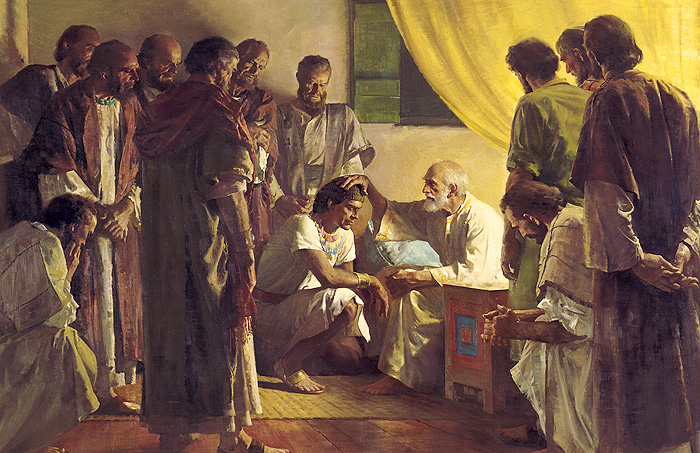
None of us knows and that makes it a mystery
If life is a comedy, then why all the tragedy
Three-and-a-half pounds of brain try to figure out
What this world is all about
And is there an eternity, is there an eternity?
– Chris Rice, “Big Enough,” Past the Edges, 1998.
Recently I quoted Chris Rice in a blog entitled “A Shift in the Wind.” Some might have been surprised to see me still using the music of Chris Rice since he is caught up in allegations regarding his moral conduct. Allegations[1] of this nature bring up difficult questions for the Christian community and society in general. How does one treat those who have fallen? How do we recognise the fact that we all sin and hurt others (Romans 3:23) and all must rely upon the grace of God, while seeking to protect those who might be harmed by an offender (who in some cases may be a predator)? I have often quoted Aleksandr Solzhenitsyn who said, “If only there were evil people somewhere insidiously committing evil deeds, and it were necessary only to separate them from the rest of us and destroy them. But the line dividing good and evil cuts through the heart of every human being. And who is willing to destroy a piece of his own heart?”[2] This sentiment is certainly worth thinking upon in the current context. If the investigation into the allegations regarding Chris Rice proves them to be true, reparations will need to be made to the victim or victims. Chris Rice might also submit to a formal restoration process and be treated with counselling and sensitivity training. Until then, and later when the truth is brought into the light, how does the average person view the work and service of Chris Rice?
Many have appreciated the music and visual art of this creative individual. Rice has ten studio albums of music to his credit with success in both the Christian genre and mainstream pop. The album, Past the Edges, from which I quoted, reached number 4 on the US Christian charts and the album Amusing generated Adult Contemporary hits with the songs “Lemonade” and “When Did You Fall.” In recent years, Chris Rice has begun painting and his original oils and art prints have been enjoyed by many. Does sin and harm to others negate previous good work? Does a prosecution for crimes committed mean that the career of the individual must be cancelled?
These are tough questions, and we must recognise that even if a person is forgiven for their sins and moves on with their life, the victims may suffer for many years beyond the scope of the original crimes. Is it fair for the offender to move on and have people continue to enjoy the offender’s vocation, while the victim may not have the same ability to enjoy the peace attained by the offender?
The reality is that those who follow Jesus may view these questions differently than those who do not believe in a higher power. The Christian knows that “all have sinned and fallen short of the glory of God,” “Yet God, in his grace, freely makes us right in his sight” (Romans 3:23, 24 NLT). The Christian knows that peace is offered to both sinner and victim. As Jesus said, “I am leaving you with a gift—peace of mind and heart. And the peace I give is a gift the world cannot give. So don’t be troubled or afraid” (John 14:27 NLT). The good news is that there is a way forward in such situations.
One of the most iconic pictures of grace, forgiveness, and peace is the image of Pope John Paul II sitting in a prison cell with the man who had tried to kill him with four bullets to the abdomen. Faith in Jesus brought peace and forgiveness to this situation. Can we live to forgive?
One of the most horrific accounts of sin is found in 2 Samuel 11 where we read of the King of Israel, David, who lies, commits adultery, and murders a man because of his lust for a woman named Bathsheba. Of course, this same David generated some of the greatest works of the Bible. The Psalms are filled with his great works of art including Psalm 23 (the Lord is my shepherd), Psalm 8 (when I look to the heavens…), and Psalm 51 (create in me a clean heart, oh Lord, my God and renew a right spirit within me). What do we do with these great works considering the great wrongs done by the same man? Few suggest that we should remove these Psalms from the canon of the Bible or no longer read them.
Yet, let us also consider the life of men like David and Chris Rice to be warnings regarding the lives we lead. Both forgiveness for the offender and peace for the victim can be found in the teachings of Jesus. [3]
[1] “While these remain allegations at this point, we are treating them as credible because of the source of the allegations and corroborating evidence we have discovered.” – Statement by Robert H Cunningham, senior pastor of Tates Creek Presbyterian Church in Lexington, Kentucky; “Christian artist Chris Rice investigated over sexual assault claims,” Christianity Today, October 16, 2020.
[2] https://en.wikiquote.org/wiki/The_Gulag_Archipelago
[3] Thanks to Karen Huston Richardson for suggesting this blog topic.

“I hear a sound and turn to see a new direction on that rusty weathervane.”
– Chris Rice, “Wind and Spirit,” Past the Edges, 1998.
A chill runs down our collective spine. The wind has shifted, and the world is not the same as it was before. That change from the naivety of summer to the chill of early fall has clashed with our sense of seasonal joy. Over the last 17 months, we have felt the change.
What do we do about the change? We will change with the seasons as we have always done. We don’t wear short-sleeves and sandals into a blizzard. We will keep our course despite the wind in our teeth. We will set the tiller of our boat and the sails on the mast so that we will reach our destination by a new route. The path may swell and fall on the waves; it may shutter and drift from side to side; but we can still get there by strategic, incremental moves.
The journey will necessarily need to be softened with kind words and empathetic smiles. One of the shifts in our culture may certainly be that people smile more at others and make gracious room for the other person’s story. Even when confronted with an angry, or discouraged, or anxious person, we have found new ways to embrace and allow the person to be who they are in that moment. I encourage us to heed the words of God and see that “blessed are those who mourn,” “blessed are those who are humble,” and “blessed are those who hunger and thirst for righteousness.”
One thing does not change. God has not changed and will not change. He is the same yesterday, today, and forever. God has, is, and always be a loving, holy, tender, fierce creator and lover of all.
“From the corners of creation
Comes the Father’s holy breath
Riding on a storm with tender fierceness
Stirring my soul to holiness.”
– Chris Rice, “Wind and Spirit,” Past the Edges, 1998.

A few years ago, a U2 song suddenly appeared in everyone’s iTunes collection. Some thought of it as a clever marketing ploy, others treated it like it was an invasion into their music collection sovereign territory. Whatever your thoughts on that media incident, if I could similarly place one song in every pastor’s play list it would be “Numbers” by Weezer, from the Okay Human album. Why would I put it in every pastor’s music library? Or every young person’s music library? Or wait, every elder’s music library? Or everyone tempted to quit their job or everyone in mid-life crisis? Or…?
Why? Because it says something we all need to hear. “Numbers are out to get you.” “They’ll kill you if they get through, numbers.” Okay, hopefully you are intrigued enough to read the lyrics and listen to the song.
Numbers
There’s always a number that’ll make you feel bad about yourself
You try to measure up
Try to measure up to somebody else
Numbers are out to get you
Numbers are out to get you
Numbers, ooh
They say that you’re too short to join the team
And your IQ’s too low for poetry
Numbers are out to get you, numbers are out to get you
Numbers, ooh
I hear the sadness in your laughter
So call on me and tell me what you need
Just call on me and tell me what you need
Look at him, look at her, they’ve got a million likes
You better figure out to how to multiply, divide
Numbers are out to get you
They’ll kill you if they get you
Numbers, ooh
I hear the sadness in your laughter
So call on me and tell me what you need
Just call on me and tell me what you need
I’m a one, I’m a zero
In the end, does it matter?
All that we even really know
Is every nail needs a hammer
But the numbers won’t compute
When we love and the two becomes one
(Zero, one, two, three, five, eight, thirteen)
I hear the sadness in your laughter
I hear the sadness in your laughter
Songwriter: Rivers Cuomo © E.o. Smith Music
I meet a lot of pastors, leaders, and employees who are anxiously wondering how to survive, thrive, and stay sane in what is shaping up to be a virtual world with a physical extension. Some are seriously depressed about needing to coordinate both online and in-person services and amenities all at the same time. They are constantly checking the numbers. “There’s always a number that’ll make you feel bad about yourself.” And there’s always a number that might temporarily make you feel good about yourself. We try to measure up to somebody else and the numbers indicate that we come up short or low. We scramble to find a way to multiply our numbers.
Carey Nieuwhof recently wrote a blog in which he pointed out “5 Ways Tracking Church Attendance Messes with Your Soul” and – ironically – I found myself comparing my life and work to that of Carey Nieuwhof. “I hear the sadness in your laughter.”
“Numbers are out to get you!” But the Weezer song also offers a solution for the numbers; an answer that is surprisingly helpful: “So call on me and tell me what you need; Just call on me and tell me what you need.” I might add, better yet, call me up and I will come over. Or let’s get face-to-face over a cup of coffee. In a world that has lost touch with real people, real handshakes, real conversation, the answers may be just that simple. At least, let real human connection be our starting point.

https://amzn.to/3w6HDxn #Supernatural

Sherlock[1], 2017, is a well-crafted take on a contemporary version of the Sherlock Holmes myth. The writing is superb, as we will see from the examples below, and the Sherlock Holmes that is depicted in this series is the epitome of self-absorption who is genuinely unaware of the emotional needs of anyone around him. His great intellect and deductive skills come from a constant focus on details and connections between networks of people and institutions. He stores all this information in his “mind palace” which can be accessed by intense concentration and by completely ignoring all people and things around him. At one point as he is assessing a crime scene, we hear this interaction between characters:
Sherlock Holmes: Shut up.
Lestrade: I didn’t say anything.
Sherlock Holmes: You were thinking. It’s annoying.
Despite his great intellect and skill as a “consulting detective,” Sherlock is never quite comfortable in his own skin. He avoids emotional entanglements so that he might evade difficult choices between love and justice and consequently cannot quite love himself. He tells himself that he does not have friends and from almost all perspectives it seems he is correct. Yet, the inner circle of John Watson, Mary Watson (wife to John), Mycroft Holmes (big brother to Sherlock), Mrs. Hudson (the land-lady), and Molly Hooper (pathologist and unrequited love) senses that he just might have a shred of care for them. In the first episode of the season, the writers wrestle with whether Sherlock could truly be considered a great or even a good man. At one point, Watson is puzzled by the behaviour of Holmes and asks Inspector Lestrade for an explanation. Lestrade explains that he does not actually understand either before saying that despite having been acquainted with Holmes for five years, he really doesn’t know Sherlock. He then says,
“But you put up with him.”
“Because I’m desperate, that’s why. And because Sherlock Holmes is a great man. And I think one day, if we’re very, very lucky… he might even be a good one.”
In one of the last episodes, we see Lestrade interacting with a uniformed police officer who says that Sherlock Holmes is a “great man.” To which Lestrade says,
“He’s better than that. He’s a good man.”
The episode entitled, “The Lying Detective” follows after Mary Watson has jumped in front of a bullet to save the life of Sherlock Holmes and dies in the process. Sherlock is later heard to say,
“In saving my life, she conferred a value on it. It is a currency I do not know how to spend.”
These are profound words upon which we might all reflect. For truly, when a life is saved, we realize the value of that life. Just ask anyone who has successfully battled cancer, been rescued from a disaster, or who has experienced an immediate healing from a life-threatening situation. Perhaps the Sherlock in this series has come to realize that there is only one way to live such a life; and that is a life of gratitude for the gift of life. When someone gives their life to save ours, the rest of our days will be lived in gratitude toward that savior and anyone else toward whom we might show some gratitude. Perhaps there is a deeper meaning here.
[1] Sherlock, 2017, The Lying Detective, Director: Nick Hurran; Writers: Steven Moffat, and Mark Gatiss

It is 3:15 am PDT/6:15 am EDT, I am up before the sun finding the video feed from the Jet Propulsion Lab (JPL) in Southern California, that is, the NASA feed of the first powered and controlled flight of an aircraft on another planet. Ingenuity, the four-pound “rotary drone that could,” is expected to fly this morning. This is the event that has been deemed the Wright Brothers moment for Mars, and I want to see history in the making.
Why is this such a big deal? It is easy to fly a drone on earth and anyone can buy one at the local electronics shop and fly it around their home on earth. We are very familiar with using our thick earth atmosphere to move things around while using the air for thrust, lift, and drag. On earth, one can stick a hand out the window of a car travelling at 100 km/hr and feel these forces of flight. We can use the wind to fly a kite; birds use the air to lift off, hover in place, dive, and travel great distances; we use the principles of flight to journey to Europe for a vacation; and we use our comparatively thick, soupy, dense, atmosphere to lift our drones into the sky for fun and for real estate videos. But on Mars, the air is anything but dense. At its thickest it is about 1% of that of Earth’s atmosphere. An average air pressure on Earth is around 1000 millibars and less than 10 millibars on Mars.
So, to fly a helicopter on Mars you need rotors that are shaped just right for maximum lift and they must travel very fast. Ingenuity’s blades rotate at around 2500 to 3000 rpm compared to an Earth helicopter’s rotors which spin at around 400 to 500 rpm. Ingenuity weighs only 1.8 kg in earth gravity and about 0.7 kg on Mars and so, there is not much weight that needs to be lifted, yet this was one aspect of the copter that had to be meticulously guarded to ensure the weight did not creep up and become greater than the lift available from the rotors.
Okay, not everyone will find such details of interest. I am just nerdy enough, just science geek enough, to want to see the data come in – in real-time. After all, I am one of a few people who have spent hours on the “Apollo 11 in real-time” website (https://apolloinrealtime.org/11/) listening to the transmission of voice and telemetry between Houston Ground Control and the three Apollo 11 astronauts. Perhaps only someone as science-oriented as me would be interested in watching the looks on the faces of the engineers, astronauts, and scientists in the room as they watched the Ingenuity data come in from the NASA Deep Space Network communications system.
There was of course the much-needed television anchor personality and the media go-between who helped interpret the results for the general public, but I found myself hoping that they would soon be finished explaining everything for the fourth time and would stop taking questions from a somewhat less scientifically oriented public, so that I could watch and hear the specialists in the room: Downlink Lead; Rotors Lead; Batteries Lead; Altimeter Lead. And here is a sample of what we got to see and hear as we tuned in live,
“This is downlink, we are beginning to see data products.” Downlink Lead,
“Rotor motors appear healthy, all actuators appear healthy.” Rotors Lead,
“Batteries appear healthy.” Batteries Lead,
“Ingenuity is reporting: having performed spin-up, takeoff, flight, hover, descent, landing, touchdown, and spin-down, altimeter data confirms, that Ingenuity has performed its first flight – first flight of a powered flight on another planet.” Chief pilot, Håvard Fjær Grip.
At which point, all had big smiles on their faces and a series of whoops and cheers erupted in the room. It gave me goosebumps. The team[1] is an impressive group of specialists from around the world and each one a leader in their specific field. It was great to see the diversity of nationalities, genders, and scientific and engineering disciplines in the room – all of them smiling and cheering one another on.
As the group congratulated each other on work well done, Project Manager MiMi Aung expressed a desire to hug each one on the team and then called on everyone to enjoy the moment before getting back to work. This was only the beginning and there are more flights yet to come. Just out of the reach of the camera, one could see part of the JPL motto on the wall: “Dare Mighty Things.” Indeed, they did dare and, on that day, daring dreams came true.
[1] Dave Lavery is the program executive for the Ingenuity Mars Helicopter, MiMi Aung is the project manager, and Bob Balaram is chief engineer.

I recently read Theological Ethics by Ross Hastings Ph.D.[1] in which he linked theological ethics with Christian spirituality. It is a fitting connection to make, and it occurred to me that our spirituality affects everything about our ethics, our moral code, our social justice, our relationships, and every other aspect of our lives. Hastings reminds us that to know the will of God, we must know God.
“Another way to say this is that knowing good and evil, right and wrong, can only come through knowing God, that is, loving God and neighbour, the core of Christian ethics. This is the chief of our affections, and it can only be renewed in us as we receive and live in divine love.” p. 227, 228.
You may find this obvious and wonder why a pastor would need to be reminded that spirituality affects how we view the world – or you may relate to how easy it is to slip into seeking to live out this life without a proper knowledge of the God who created us in his own image.
Every pastor wrestling with ethics in their local church would benefit from reading this book. I particularly appreciate that Hastings grounds ethics in spirituality. Knowledge of God’s will is rooted in knowing God, listening to the Spirit, and observing the model of the Son.
As Jeremiah 9:23, 24 (NLT) says,
“This is what the Lord says:
“Don’t let the wise boast in their wisdom,
or the powerful boast in their power,
or the rich boast in their riches.
24 But those who wish to boast
should boast in this alone:
that they truly know me and understand that I am the Lord
who demonstrates unfailing love
and who brings justice and righteousness to the earth,
and that I delight in these things.
I, the Lord, have spoken!”
So, let us seek to truly know and understand this Lord who demonstrates unfailing love and brings both justice and righteousness to the earth. Truly knowing and truly understanding God will be a life-long pursuit for all of us. May we pursue this knowledge in the wonderfully rich community of the Body of Christ.
[1] Theological Ethics: The Moral Life of the Gospel in Contemporary Context, Ross Hastings, Zondervan Academic, 2021.

What do Meghan Markle, Millie Bobby Brown, Britney Spears, Greta Thunberg, and Enola Holmes have in common? Or name four real persons and one fictional person who just might change the world.
It is not easy being the Queen of the United Kingdom right now. Meghan Markle and Prince Harry will change the monarchy in Britain, as sure as the Millennial generation will change the world. They have detected the rotting floor boards beneath the carpets of Windsor Castle and will correct the decay.
You may be unfamiliar with Millie Bobby Brown, but she represents a crop of young artists and actors who are proclaiming an important message about the need to recognise the rights of women, blacks, and other oppressed people. She stars in and helped produce the movie Enola Holmes which conveys a message that, “the future is up to us” (spoken by 16-year-old Enola Holmes, in the voice of 17-year-old Brown who plays Enola); and the movie even goes so far as to say “your time is over” to a woman whose generation appears to be the same as that of the British monarch while the line is delivered by a young man of about Enola’s age (Viscount Tewkesbury). The Millennials (and younger generations) have a point, the future is at least partly up to them and they will make a difference.
Britney Spears is finally on her way to being emancipated from strict financial guardianship, thanks to the voices of many who said, “this is not fair,” and “no one would put up with a man being treated this way.” Good for them; Britney Spears certainly contributed to the circumstances that got her there, but surely the guardianship has been in place for too long.
Greta Thunberg is out to change the minds of any that stand in the way of caring for our planet. If she can’t change their minds, she will change the world anyway. I will pray for her because it is a tough climb when we still have people within the Conservative Party of Canada who recently blocked the passage of a statement that quite simply said, “climate change is real” and “we are willing to act.” Apparently, there are still some who think it is not real and therefore are not willing to act.
That change is about to take place is as it should be. The Baby-Boomers in their time changed the world, even as they surpassed and rebelled against their parents. Just a few historical references to the changes that occurred will be sufficient to show this to be true: Woodstock, Viagra, Apple computers, artificial hearts, the World Wide Web, synthesized music, and the eradication of polio, whooping cough, smallpox, and mumps. Think also of the Beatles, Rolling Stones, The Who, and beat poets. And think further of these developments during the Boomer era: cell phones, automated bank machines, working past the age of 65, women in the work force, Contemporary Christian Music, and guitars and drums leading worship. All of these were driven by or took place during the Boomer generation’s watch. Of course, the Baby Boomers also made many mistakes as they changed the world.
Each generation makes its own contributions and mistakes on the way to becoming old and irrelevant. Shh, please don’t tell the Millennials that they too will one day be old. We wish them well and encourage them to change this world that we all know needs changing. Well, one more quote from the Enola Holmes movie might show how not everyone is interested in changing the world. Tearoom proprietor, Edith, puts Sherlock Holmes in his place with a political truth. She tells him, “You don’t know what it is to be without power,” and, “politics doesn’t interest you because you have no interest in changing a world that suits you so well.” Hmm, another mic-drop moment that may be obvious, but no less true. There is hope in young lives impassioned by a vision of the future that is different from the world in which they live. Millie Bobby Brown suggests that this is the theme of the movie and that it is an important message for her entire generation. I would agree and suggest that it is time for the Baby-Boomers to get out of the way. Unless, of course, the younger generations ask us for some wisdom along the way. All generations will undoubtedly benefit from listening to one another.
In fact, I do hope that all of us can learn to change the world while showing a great deal of care for one another; dialoguing passionately, and patiently with ones with whom we disagree. I may disagree with those who want the world to get back to their form of normal and I need to listen patiently, converse zealously, and love generously even as I disagree with others. In fact, in my Christian worldview guided by the words of Jesus, it is sin to disregard the oppressed, the minority (whatever minority), or the zealot in another camp.
As even the Jesus’ Hippies of the 70s knew, the message of Jesus is very much about rights. It is about the rights of the minorities, the oppressed, the sick, the mentally ill, the poor, the rich, the political, and the apolitical. It is about laying down one’s own rights for the sake of the rights of others: as Jesus ultimately did on a Roman cross, surrounded by his own Jewish people howling “crucify him.” As Curtis Chang says about the rights of Christians within the context of public health and the COVID-19 vaccine,
… you can start by affirming the fact that yes, it’s a legitimate concern about [a] form of government control, that in the pandemic, we can point to specific examples and validate that fear of government overreach at churches and Christian gatherings…. However, here’s the biblical way of how Christians … are meant to respond to that fear. It’s through prayer, persuasion, [and] legal action only as necessary. But it’s not through outright disobedience. You know, Romans 13:1 is clear on that. And then we try to pivot to actually—really do persuade to say, look, there is this other value that actually is even more important. And that’s where to be a Christian, is to say, what is necessary is not just what is necessary for me. That my view on rights is not just my own personal rights, but that in the whole biblical model of Jesus is laying down one’s rights on behalf of the others. It is to say that what is necessary is to adopt the posture of a servant. This is fundamental to the gospel. And that is a conversion. There’s no getting around that, that that’s a conversion of a deep value that is centered not on yourself and your rights and what’s best for you, but really what’s best for others, laying down our rights for the sake of the greater good in the model of Jesus…. That’s a public expression of the gospel that we all must be converted to. We must all repent and actually follow that way. And I don’t think there’s any way around that conversion necessity.[1]
So, getting back to the main point, yes, let us change the world. It needs changing. Let us do so within gracious community and with true and courteous love for even the most unlovable. The director of Enola Holmes, Harry Bradbeer says,
“… when I wrote, ‘the future is up to us’, I wanted to leave it open-ended. We’re not saying everything’s going to be fine. We’re not saying Enola’s going to be fine. In fact, she bicycles into a London that’s going to damage her, and beat her up, and things are still going to be difficult for her. But what we’re saying is, it’s your responsibility. Don’t rely on others. Think for yourself and do the right thing.”[2]
But does Enola have to be damaged and beaten up? I pray that we might indeed change the world and make it a place of grace for change activists like Enola Holmes and many others. I pray that our world does not damage the Enolas of the community. I pray that each and every one of us, Baby-Boomers, Millennials, and other generations might graciously help one another to make this world a better place (even as we will likely make more mistakes along the way), “’cause these are the hands we’re given; and this is the world we live in; use them and let’s start trying; to make it a place worth living in.”[3]
[1] “Christians and the Vaccine,” Biologos, 2021, https://biologos.org/podcast-episodes/curtis-chang-and-david-french-christians-and-the-vaccine.
[2] “Enola Holmes ending explained: What did that final line actually mean?Millie Bobby Brown has explained what Enola meant by ‘the future is up to us’”; The Tab; https://thetab.com/uk/2020/09/28/enola-homes-ending-explained-final-line-netflix-176637
[3] “Land of Confusion,” Songwriters: Anthony George Banks / Phillip David Charles Collins / Michael Rutherford, Land of Confusion lyrics © Concord Music Publishing LLC

A recent article in Science News[1] raises serious concerns about new developments in brain research. You can read the entire article here but allow me to summarise some of the key points. The field of neuroscience is one of the most important biological sciences of our time and the advances in recent years have been staggering. Scientists have found that by inserting probes into the brains of humans and eavesdropping on the synaptic signals, they can actually interpret the neural chatter well enough to allow people to use computers to shop online and use prosthetic arms with nothing but their minds. The technology obviously offers great opportunities for people with disabilities and so we would want to encourage this research. But along with the opportunities for great good come some ethical and privacy concerns.
What we are really talking about is the ability to read a person’s mind. We might read a signal and convert it into a machine movement, or we might read a signal and convert it into text on a screen or checkmarks in an online shopping cart. Columbia University gave a demonstration of technology in which a man was able to respond to a question and deliver a text message using only his mind. If we can listen in to the brain in this fashion, what else might be possible? The Neuralink company (another of Elon Musk’s entrepreneurial endeavours) envisions a day when we all might have a neural mesh wired in under our skulls to listen in on our brains. The use might be as simple as being able to call your car (a Tesla of course) from the parking garage simply by thinking about it or to allow us to think about a Google search and have the information appear in our brains.
This linkage of mind and computer has some questioning how far this might go. Do we really want our brains to be connected to our computers? What if someone were able to hack into our brains and listen to our private thoughts? Could the direction of influence flow both ways? Might our minds be bombarded with advertisements much like our social media feeds of today? Could a government use such technology to provide us with blissful thoughts when we acted in certain ways? Of course, such technology and their uses are far beyond today’s capabilities, but we need only to look at how quickly some of our other technology has advanced to realize that these are legitimate concerns. How might we regulate the advances of brain/computer technology when the advantages and conveniences offer such a powerful incentive and emotional attraction? A quote on the front page of NeuraLink’s webpage makes it clear that there are tremendous possibilities and huge commercial gains to be made in this type of research:
“Every day we’re building better tools for communicating with the brain. With the right team, the applications for this technology are limitless.”[2]
The Science News article pointed out a number of ethical questions and asked people for their concerns and feedback. The author also offers a link to a major neuroethics paper that attempts to suggest ways in which researchers might be responsible in their ethical choices. It will be important for all of us to consider the developments of such technology in the years to come. As some have pointed out, the internet, our smartphones, and social media were largely developed without much consideration for their effects upon our world. Not all of those influences have been positive. Have we learned from the past and can we avoid making similar mistakes in our neural technology future?
[1] “Can privacy coexist with technology that reads and changes brain activity?: Ethicists, scientists and our readers consider the ethics of brain technology”, Science News February 11, 2021, https://www.sciencenews.org/article/technology-brain-activity-read-change-thoughts-privacy-ethics
[2] Neuralink webpage, “Create the Future with Us,” https://neuralink.com/ accessed 2021-02-13.

Joseph is certainly one of the most righteous and dedicated men of the Old Testament. Although he was kidnapped, sold into slavery, wrongfully accused, incarcerated in prison for many years, and seemingly forgotten by even God, Joseph remained faithful. He was faithful to God and faithful to his father and brothers, despite the fact that his brothers were the very ones who had planned his death and succeeded in selling him into slavery. Even though he was assimilated into a foreign culture by the Pharaoh of Egypt, he remembered who he was and where he came from. He maintained his sexual morals in a culture that encouraged men to take what they can get.
The interaction between Joseph and his brothers is fascinating and instructive, particularly as we pay attention to Joseph, Reuben, and Simeon. In Genesis 37 we read that the initial plan was to kill Joseph out of jealousy. The brothers cooked up a plan to leave Joseph to die a slow death by hunger and dehydration in a dry cistern. Reuben, the firstborn, had pity on Joseph and planned to rescue him but he gets left out of the further plot by Judah (fourth-born), Simeon (second-born) and the rest of the brothers. Instead of letting Joseph die, they decided to profit from his disappearance by selling him to slave-traders and tell their father that an animal killed Joseph. We don’t know precisely which of the brothers were present for all of this plotting and scheming, but we do see in Genesis 37:2-4 that all of his half-brothers (sons of Leah, Bilhah, and Zilpah) hated him for being an honourable man who made them look bad in the eyes of their father. Joseph was only 17 at this point and so Benjamin, the youngest brother would have been at home and would not have been involved in the kidnapping of Joseph or deception of their father.
So, Joseph was sold into slavery and lost to the family story for many years. But God guided Joseph through those many years and prepared a means of rescue for all of the descendants of Jacob (who later became the people of Israel). Joseph worked many years as a slave but because of his good work ethic and righteousness before God and the people of Egypt, he was given much responsibility. Joseph was handsome and well-liked and so eventually his master’s wife took an interest in him and tried to lure him into her bed. Joseph remained an upstanding man but the woman scorned takes out her anger on him and has him thrown in prison for many years.
One might expect Joseph to curse God and die at this point in his life for he has had nearly as many calamities as Job. But Joseph remained true to his honour and faithful to his God by working diligently in the prison. Once again, he distinguished himself even in that environment and became a trusted leader in the prison. He helped others by asking God to interpret their dreams and even when those he helped forgot him, he continued to be a faithful friend and a trusted worker. Eventually, by God’s grace, Joseph’s life was restored, and he found himself out of the prison and in charge of managing the storehouses and wealth of all of Egypt. This represented a meteoric rise of one man from slave to second-in-command of all of Egypt. Through all of the good and bad, ups and downs of his life, Joseph remained composed, faithful, and worthy of respect.
Even as we see his interactions with his brothers in Genesis 37 through Genesis 50, he displayed a remarkable sense of composure, grace, and wisdom. He knew the whole truth. He knew that Reuben participated in the kidnapping, but he also knew of Reuben’s honourable attempt to rescue him from his brothers. He put all of the brothers in prison for three days, perhaps so they could meditate upon their lives and the wrongs they had done. He sent them back to Jacob with food and their money and demanded that they bring his youngest brother (the one innocent of Joseph’s slavery) to him. He knew the main perpetrators of his slavery and so he took the opportunity to tie up Simeon and lock him in prison while the rest returned to their father. Yet, he also treated Simeon with care and respect. What lesson did Simeon learn during his time in an Egyptian prison? What lessons about their own sins and God’s forgiveness did each of the brother’s learn?
This last phase of Joseph’s journey is particularly interesting for, in God’s economy, he rescued the children of Israel through Joseph’s life in Egypt. Think about this: because of the cruelty of the sons of Jacob, Joseph, the very one whom they planned to allow to starve in a cistern, is now in a situation in which he is able to rescue the sons of Jacob from starvation. As Joseph says in Genesis 50:20, “You intended to harm me, but God intended it all for good. He brought me to this position so I could save the lives of many people.” Truly, the sons of Jacob intended harm, which God redeemed and turned the intention into something good. Of course, years later, we who follow Jesus recognize that God is in the habit of turning horrible harm into things which he intends for good. The greatest example of this is the cruel cross upon which Jesus died which becomes the means by which salvation is delivered to all who accept the work of the cross. We see other examples of God redeeming bad situations and bringing good instead. Perhaps we might even point to a tiny virus known as SARS-CoV-2 and see how God is redeeming many things in the current COVID-19 crisis of our world.
Joseph may be just the right message for a world dealing with loss and the need to deny ourselves of the joys normally experienced; or even a world in which we must deny ourselves of retaliation for wrongs done to us. Joseph shows us grace and faith in the midst of great injustice. Let us meditate upon his life and find that which is there for us to learn today.